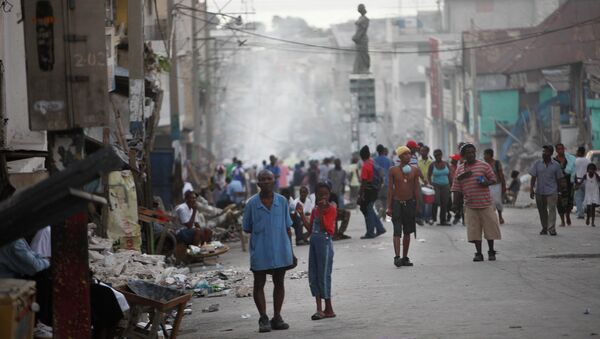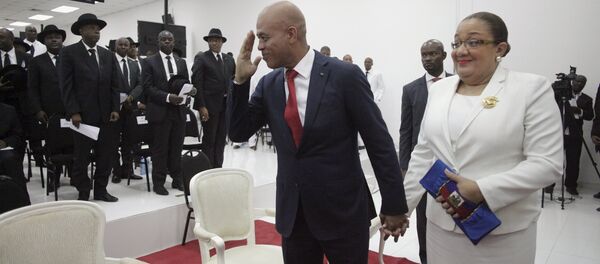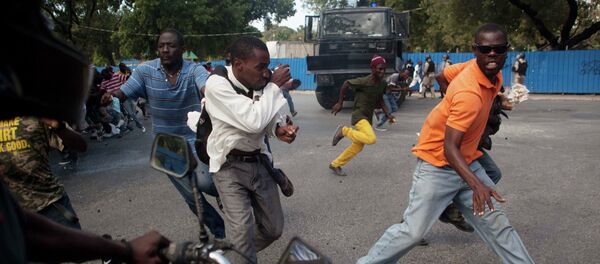Ban Ki-Moon’s address came in the wake of an internal report from the organization obtained by the New York Times that found the cholera outbreak “would not have broken out but for the actions of the United Nations.” UN leadership fell short of admitting responsibility for the disaster.
According to Merope-Synge, citing watchdog reports, UN peacekeepers were dumping sewage waste into rivers that supply drinking water at least until 2014, four years after the beginning of the outbreak.
“There was absolute systematic disregard for the most basic standards of sanitation. This continued for years following the initial cholera outbreak,” she said. “This demonstrates systematic disregard for Haitian lives, frankly, and the inability to reform and take this problem seriously, from the field level in Haiti all the way up the UN, including the UN Secretary General.”
The apparent organizational negligence outlined in multiple reports on the cholera outbreak has its roots in the role that the UN played in contemporary Haitian history, according to analysts.
The country has been subject to a string of US-orchestrated coups. In 1996, Democratic Nationalist Jean-Bertrand Aristide was legitimately elected president, but was toppled within eight months by a coup, Ives said, adding that Aristide came to power again in 2001, and was overthrown again three years later, in “another US –backed coup.”
“After the first coup they put in US forces to occupy the country, which then was passed off to the UN to act as a sort of a proxy,” Ives said, adding that UN forces were pulled out of the state in 2000, and brought back when Aristide was re-elected in 2004.
“They were supposed to come for just six months. But here we are – twelve years later, and the UN forces are still there. They are essentially there to keep down Haitian people and act in place of the Haitian army that used to govern the country.”
Aside from the cholera outbreak, the UN is charged with other violations, Merope-Synge said, quoting reports from Doctors without Borders in which UN peacekeepers “consistently violated human rights” in poor neighborhoods, including anti-gang operations resulting in many deaths, and sexually abusing civilians, including minors.
Haiti is looking forward to its October 2016 elections, both analysts agreed.
“This will be the moment of truth: Can Haitian people get back their sovereignty and hold elections that are not intervened with by the UN?”
The upcoming presidential election in the US, “will be not good news” for Haiti, regardless of the local outcome, Ives said.
“Neither Trump nor Clinton, is concerned with the Haitian problem,” he said. “Clinton played the terrible role in Haiti, leading a so-called rebuilding effort in 2010. Hillary Clinton’s centerpiece was to build a sweatshop in the north of Haiti, which is not going very well.”





